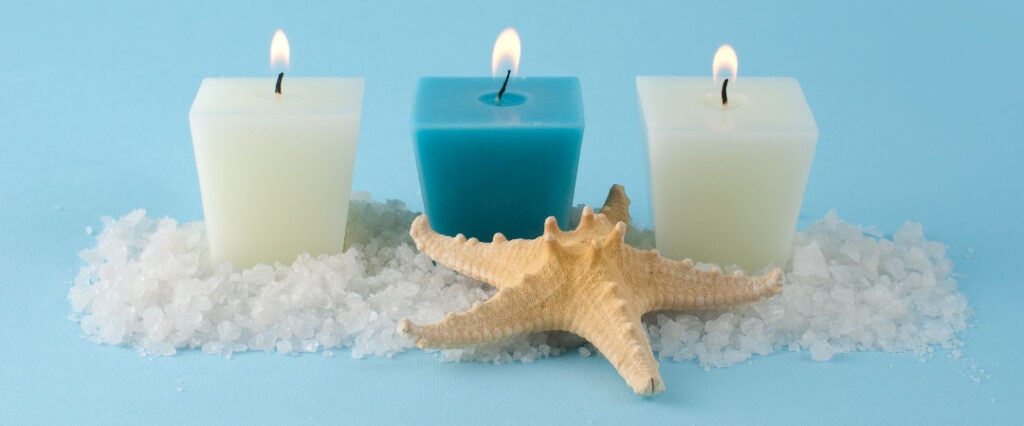If you’re like me, the weeks leading up to the holidays have you being constantly bombarded with requests from family and friends for a list of gift ideas. You may also be asking others for their lists. But what do you get for the caregivers in your life – the people who give of themselves seemingly endlessly, and who rarely ask for anything specific. I’ve collaborated with the other talented women on the Breathing Spaces blog team to offer this Caregiver’s Gift Guide. Each of us has suggested a tangible gift – something that can be touched, held, or used – and an intangible gift – something of and from the heart. Even better, these gifts are not limited to caregivers, but are suitable for anyone on your gift list.

Here’s what we came up with:
- A cozy blanket, herbal teas with a mug, and a soothing lotion – these encourage moments of relaxation and rejuvenation, which are so valuable for all caregivers (we all are caring for ourselves, too).Why we love it: These are all comfort items that nurture and provide warmth (literal and emotional). It’s also a reminder that we all need to make time to curl up with a good book and give ourselves some respite from our busy lives.
- A voucher for virtual classes – at Breathing Spaces, we have many courses/workshops and one- on- one’s we offer that have been created by and for caregivers of all types. Why we love it: As Cyndi says, “We have been in the same place that many caregivers have and understand the needs very well. These speak right to the heart of what supports caregivers (of all types) on their journey.”
- A glass heart. Why we love it: It’s a representation of love and loyalty, something that can serve as a reminder that we are not alone, and we are loved. As well, the heart and soul are too often neglected or overlooked; this helps us remember to care for ourselves and others wholly and holistically.
- Listening to a Caregiver’s Story. Why we love it: Gail says, “Sometimes a person needs to tell their story more than they need anything else. If we listen carefully, the caregiver will feel heard, understood and be witnessed and that is their gift.”The author Madeleine L’Engle wrote that we humans are made of story, so sharing stories is the ultimate form of connection. It doesn’t matter if the story is fact or fiction, embellished by imagination or limited to simple truths, the act of listening is a gift that knows no bounds, and the story being told becomes a gift as well.

- A delivered meal (or a few), an encouraging card or note from an “anonymous friend,” candles, or books that inspire courage, strength, and resilience.Why we love it: Cindy reminds us that meals are especially useful during the busy holiday season when everyone’s schedules are jam-packed. For caregivers, the focus is often on feeding others rather than nourishing themselves. Books, candles, and cards are all reminders that we are seen and thought about.
- As Cindy says, this gift, while intangible, is also priceless. “Caregivers often navigate an incredibly tough path, and hearing words that affirm their courage, strength, and dedication can mean so much. Letting them know that someone is there for them, no matter what, is a gift of the heart that can provide immense comfort and support.
- Slippers, foot cream, and a foot massage, either offered personally or via a gift card to a nail salon (for a pedicure) or massage therapist.Why we love it: Caregivers are on their feet ALL the time, and even when they’re not physically standing, they’re in constant mental motion. Even if you’re not a believer in reflexology, our feet are the barometers of our general well-being. It’s also a reminder that self-care isn’t selfishness; it’s survival.
- Time and Talent (do a specific chore like folding laundry, cooking a meal, child or pet care, or even sitting with an elderly relative for a couple of hours to give the primary caregiver a break.)
Why we love it: As caregivers, what we often need is a helping hand, but because we’re so accustomed to taking care of other people, we forget to ask for the help we need. While those coupons for “one free hour of chores” that many of us gave our mothers as small children are great, offering to do a specific task is often better, because the caregiver doesn’t have to schedule anything or ask to ‘redeem’ a coupon.
As you can see, all of us find intangible gifts as important, or even more important, than things that come with festive paper and shiny ribbons. This guide isn’t meant to be a definitive list; rather it’s a starting point.
If you’re a caregiver, what tangible and intangible things are on your wish list? Please leave a comment and let us know.
And of course, whatever you celebrate, we wish you a holiday season full of happy faces and warm hearts.
